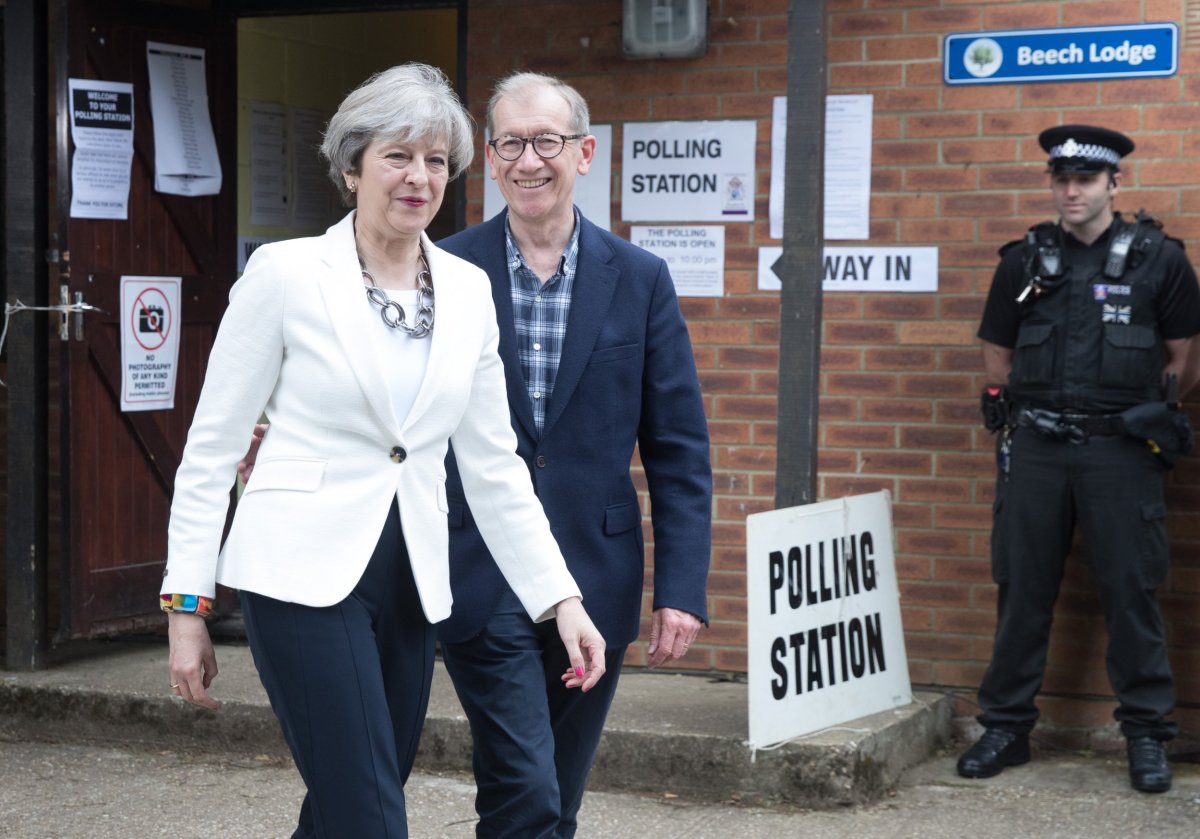This article first appeared on the American Enterprise Institute site.
Today, the British electorate is going to the polls for the third time in two years following Prime Minister Theresa May's decision to call a snap parliamentary election.
By tomorrow, by which time the ballots will have been counted, we will know whether this election served any useful purpose or, rather, whether it was a cynical exercise in political futility that might risk further undermining the electorate's confidence in the country's political class.
There was no real reason for Theresa May to have called this election so soon after the last general election in May 2015. Over the past year, she herself acknowledged this point on several occasions before finally reversing herself by calling the snap election for June 8.

The life of the current parliament was only due to expire in 2020 and her Conservative Party enjoyed a workable majority in that parliament. Had the next election occurred on schedule, it would have occurred after a Brexit deal had been negotiated.
The reason Mrs. May advanced for calling this election was related to the upcoming Brexit negotiations with the country's European partners. Following the March 2017 triggering of Article 50 of the Lisbon Treaty, which marked the start of the two-year period the Brexit negotiations have to be completed, Mrs. May claimed that she needed a strong mandate from the country's electorate for those negotiations.
RELATED: May v. Corbyn : Where Did the Tory Landslide Go?
The more likely reason for her having called those elections was that she sought to take advantage of what she perceived to be the disarray in the opposition Labour Party under the leadership of the supposedly unpopular Jeremy Corbyn. She calculated that the opposition party's seeming disarray offered her the golden opportunity to substantially increase her Conservative Party's parliamentary majority for the period through 2022.
Electoral polls taken immediately after her having called the election seemed to vindicate the wisdom of her decision. They suggested that the Conservative Party was headed for a landslide electoral victory. However, over the past few weeks, Mrs. May has seen the Conservative Party's lead over the opposition party more than halve from over 20 percent to somewhere around 7 percent.
This narrowing in the polls has been the result of both a number of serious missteps in Mrs. May's electoral campaign as well as a very much better than expected electoral performance by Jeremy Corbyn. In a manner reminiscent of Bernie Sanders's US presidential campaign, Mr. Corbyn's far-left electoral message of increased social spending and higher taxes on the rich has resonated with the UK's young and disaffected voters.
On the basis of the current polls, there is the distinct possibility that the Conservative Party will lose its parliamentary majority and that the country will be stuck with a hung parliament for the next five years.
Were that to occur, the United Kingdom will be in a weak position as it goes into the Brexit negotiations. In those circumstances, it will be very difficult for the United Kingdom to deal with its European partners with a united front, which will reduce the chances that the country will get a good Brexit deal. This is bound to raise serious questions as to what was the point of the elections in the first place and as to whether Mrs. May could possibly continue as leader of the Conservative Party.
Electoral polls in the United Kingdom have in the past proven to be notoriously inaccurate and it is still possible that the Conservative Party will significantly increase its parliamentary majority. However, it is far from clear that such a result will ensure that the country will get a good Brexit deal.
RELATED: UK General Election 2017: How to Watch, When to Expect Results
In the heat of the campaign, Mrs. May has taken positions that will hardly have endeared her to her European counterparts and that will have put the country on the path to the hardest of Brexits.
She has repeatedly indicated that no Brexit deal would be better than a bad deal. She has also doubled down on crossing the red lines drawn by the UK's European partners on issues related to the free movement of labor and to abiding by the decisions of the European Court of Justice.
Should the United Kingdom in the end not get a good Brexit deal, history is bound to judge Mrs. May unfavorably. In particular, history is unlikely to look unkindly upon her having called an unnecessary election that far from improving the country's chances of getting a favorable Brexit deal actually set those chances back.
Desmond Lachman is a resident fellow at the American Enterprise Institute.
Uncommon Knowledge
Newsweek is committed to challenging conventional wisdom and finding connections in the search for common ground.
Newsweek is committed to challenging conventional wisdom and finding connections in the search for common ground.
About the writer
To read how Newsweek uses AI as a newsroom tool, Click here.






